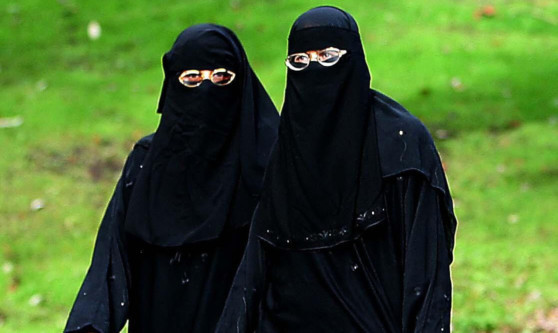Islam is rarely out of the public eye these days, and for all the wrong reasons.
Recent headlines include Muslim hate crime soaring by 70% in London, a warning from Muslim leaders that Islamic State terror recruiters are “prowling” the streets of Britain, and debate over whether Britain is being “taken over” by Muslims.
As one of Britain’s most high-profile Muslim academics who regularly appears on British television and radio, internationally renowned speaker Professor Mona Siddiqui, of Edinburgh University, is no stranger to debating difficult questions.
And yet despite the overwhelming majority of Britain’s 2.7 million Muslims being regarded as peaceful people, she says discussions rarely get beyond debates about extremism and the veil.
“Most people see Islam in terms of conflict,” she told The Courier ahead of a lecture at Dundee University.
“The only way of talking about multiculturalism seems to be through the prism of terror.
“At a time when much of the western world is trying to understand and situate the role of religion in the public sphere, Islam has probably become one of the most easily identifiable images of religious life in our urban societies.
“Yet the visibility of Islam has become problematic for many who see the faith and its followers as being opposed to the freedoms of liberal democracies.”
Ms Siddiqui said many British Muslims are concerned about what faith means and whether they have a legitimate voice as part of civil society. She said there are also philosophical questions, such as should faith have a privileged voice in society?
Ms Siddiqui said the situation had been exacerbated by events in the Middle East. In many ways the relationship between Islam and society in Britain is “one big mess”, she said, often seen through the “prism of negative news stories”.
But she insists it’s not about blaming sides. Her simple message is one of coexistence between Muslims and other faiths. At a time when tensions run high, and fanatics continue their bent towards mayhem, she has used her faith position and her voice to “call on Muslims to be more tolerant towards other faiths and views”.
She added: “It really is about raising awareness. How is it that on the one hand people are struggling and want to have a voice in public life, and what does it mean to be part of public life? On the other hand, how do we deal with the wearing of the hijab in schools, and people going off to fight with ISIS?”
Born in Karachi, Pakistan, Ms Siddiqui moved to Britain at the age of five. Her parents were literary people with a keen interest in religious matters and the literature and poetry of the Indian sub-continent.
She learned to read the Qur’an in Arabic and Urdu from her mother. She grew up in Huddersfield where she attended school and later went on to study Arabic and French at Leeds University. She continued her studies at Manchester University gaining a master’s degree in Eastern Studies in 1986, and a doctorate in classical Islamic Law in 1992. She moved to Glasgow after she got married, and this is where she lives today with her family.
She has lectured in Arabic literature, Islamic studies, law and theology in various universities and was Professor of Islamic Studies at Glasgow University until December 2011. She was awarded an OBE that year for her contributions to interfaith relations.
In 2012 she took up her post as Professor of Islamic and Inter-religious Studies at Edinburgh University.
She is well-known in the UK for her broadcasting and press work. She has sat on various advisory boards for organisations such as Glasgow’s Gallery for Modern Art and Scottish Asian Arts. She holds three honorary doctorates and is a visiting professor.
She has spoken on religion and politics at the World Economic Forum in Davos, and was named in the Debretts 500 list of the most influential people in the UK for 2015. Her most recent book is entitled ‘Hospitality in Islam’.
The Margaret Harris Lecture was instituted in 1965 and is named after an early benefactress of the university whose estate endowed its first chair of physics and, in 1973, the Chaplaincy Centre. Past speakers have included the Dalai Lama and leading religious affairs commentators.
*Professor Mona Siddiqui delivers the Margaret Harris Lecture on Religion 2015, entitled ‘Veils, Values and Voices Religion and the Public Space’, at Dundee University’s Dalhousie Building at 5.30pm on Wednesday November 11.
For free tickets click here, email events@dundee.ac.uk or telephone 01382 385108/388154.
